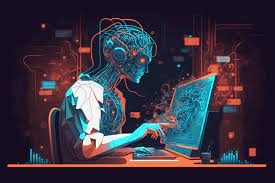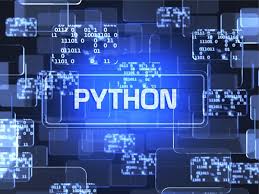AI Programming: Unlocking the Future of Technology
AI Programming: Transforming the Future
Artificial Intelligence (AI) programming is revolutionizing the way we interact with technology. From smart assistants to autonomous vehicles, AI is at the forefront of innovation, driving significant changes across various industries.
What is AI Programming?
AI programming involves creating algorithms and models that enable machines to mimic human intelligence. This includes learning from data, recognizing patterns, making decisions, and even understanding natural language. The goal is to develop systems that can perform tasks typically requiring human cognition.
Key Components of AI Programming
- Machine Learning: A subset of AI focused on building systems that learn from data and improve over time without being explicitly programmed.
- Deep Learning: A more advanced form of machine learning using neural networks with many layers to analyze complex patterns in large datasets.
- Natural Language Processing (NLP): Enables machines to understand and respond to human language in a meaningful way.
- Computer Vision: Allows machines to interpret and make decisions based on visual data from the world around them.
The Role of Programming Languages in AI
A variety of programming languages are used in AI development, each offering unique features suited for different aspects of AI:
- Python: Known for its simplicity and readability, Python is widely used due to its extensive libraries such as TensorFlow and PyTorch that facilitate machine learning and deep learning projects.
- R: Popular among statisticians and data miners for its strong data analysis capabilities.
- LISP: One of the oldest languages used in AI development, known for its excellent support for symbolic reasoning and rapid prototyping.
- Java: Valued for its portability, scalability, and extensive community support in building large-scale AI applications.
The Impact of AI Programming on Industries
The influence of AI programming extends across numerous sectors:
- Healthcare: AI assists in diagnosing diseases, personalizing treatment plans, and managing patient records efficiently.
- Finance: Algorithms predict market trends, assess risks, and detect fraudulent activities with high accuracy.
- Agriculture: Smart systems optimize crop yields through predictive analytics and automated farming techniques.
- E-commerce: Personalized recommendations enhance customer experiences while optimizing supply chain management.
The Future of AI Programming
The future of AI programming holds immense potential as research continues to push boundaries. With advancements in quantum computing, improved algorithms, and ethical considerations guiding development practices, the next generation of intelligent systems promises even greater societal benefits. As technology evolves rapidly, staying informed about trends in AI programming is crucial for those looking to harness its transformative power effectively.
The journey into the world of artificial intelligence is just beginning. With continued innovation and collaboration across disciplines globally shaping our collective future together – one line at a time!
6 Essential Tips for Mastering AI Programming
- Understand the basics of machine learning algorithms
- Stay updated with the latest advancements in AI technology
- Practice coding regularly to improve your programming skills
- Experiment with different AI frameworks and tools to find what works best for you
- Collaborate with other AI programmers to learn from each other and share knowledge
- Always test and validate your AI models thoroughly before deploying them
Understand the basics of machine learning algorithms
Understanding the basics of machine learning algorithms is crucial for anyone venturing into AI programming. These algorithms form the foundation of how machines learn from data, identify patterns, and make decisions with minimal human intervention. By grasping fundamental concepts such as supervised and unsupervised learning, decision trees, neural networks, and clustering techniques, programmers can better design and implement models that effectively solve real-world problems. A solid comprehension of these algorithms also enables developers to select the most appropriate methods for their specific tasks, optimize performance, and troubleshoot issues more efficiently. Ultimately, mastering the basics of machine learning algorithms empowers programmers to create more intelligent and adaptive AI systems.
Stay updated with the latest advancements in AI technology
Staying updated with the latest advancements in AI technology is crucial for anyone involved in AI programming. The field of artificial intelligence is rapidly evolving, with new algorithms, tools, and techniques emerging regularly. Keeping abreast of these developments ensures that programmers can leverage cutting-edge solutions to build more efficient and effective AI systems. By following industry news, attending conferences, participating in webinars, and engaging with online communities, developers can gain insights into the latest trends and innovations. This continuous learning process not only enhances one’s skills but also opens up opportunities to implement state-of-the-art technologies that can drive significant improvements in various applications and industries.
Practice coding regularly to improve your programming skills
Practicing coding regularly is essential for anyone looking to enhance their skills in AI programming. Consistent practice not only helps solidify fundamental concepts but also allows programmers to experiment with new techniques and algorithms. By dedicating time each day or week to coding, individuals can stay up-to-date with the latest advancements in the field and gain hands-on experience with various tools and libraries. This continuous engagement with code fosters problem-solving abilities and boosts confidence when tackling complex AI challenges. Furthermore, regular practice enables programmers to build a robust portfolio of projects, showcasing their growing expertise and making them more attractive to potential employers or collaborators in the ever-evolving tech industry.
Experiment with different AI frameworks and tools to find what works best for you
Experimenting with different AI frameworks and tools is essential for anyone looking to excel in AI programming. Each framework offers unique features and capabilities, catering to various aspects of artificial intelligence development. For instance, TensorFlow and PyTorch are popular for deep learning due to their robust libraries and community support. Meanwhile, frameworks like Scikit-learn are ideal for simpler machine learning tasks. By trying out multiple tools, developers can identify which ones align best with their specific project requirements and personal preferences in terms of usability and functionality. This hands-on exploration not only enhances one’s skill set but also fosters a deeper understanding of the strengths and limitations of each tool, ultimately leading to more efficient and innovative AI solutions.
Collaborate with other AI programmers to learn from each other and share knowledge
Collaboration among AI programmers is a powerful way to accelerate learning and innovation. By working together, individuals can share diverse perspectives and expertise, leading to more robust solutions and creative problem-solving. Engaging with a community of peers allows programmers to exchange knowledge about the latest tools, techniques, and best practices in AI development. This collaborative environment fosters continuous learning and can help identify potential pitfalls early in the development process. Additionally, collaborating with others provides opportunities for mentorship, networking, and building relationships that can enhance both personal and professional growth in the rapidly evolving field of artificial intelligence.
Always test and validate your AI models thoroughly before deploying them
Thorough testing and validation of AI models are crucial steps before deployment to ensure their reliability and effectiveness in real-world scenarios. By rigorously evaluating the model’s performance, developers can identify potential weaknesses or biases that might not be evident during initial development. This process involves using a diverse set of data to simulate various conditions the model may encounter, which helps in assessing its accuracy, robustness, and fairness. Additionally, thorough testing can reveal any unintended consequences or ethical concerns that need addressing. Ultimately, investing time in comprehensive testing and validation not only enhances the model’s performance but also builds trust with users by ensuring that the AI behaves as expected once deployed.




